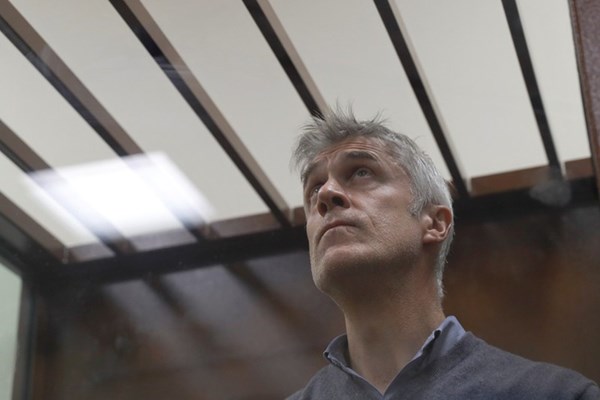US accuses Russia of violating consular agreements in Calvey case
The arrest of Baring Vostok founder Michael Calvey, one of the largest American investors in the Russian economy, is well on its way to becoming an international scandal. The Basmanny Court of Moscow has placed Calvey in a pre-trial detention center for 2 months in connection with a corporate dispute.
According to the Russian news outlet RIA Novosti, the US Embassy to Moscow has accused Russia of violating bilateral consular conventions which stipulate that as a US citizen Calvey should receive consular assistance.
US embassy staff are not being allowed to contact Calvey, who was arrested on 15 February, spent a night in an isolation cell in eastern Moscow, and was later sent by judge Artur Karpov to a pre-trial detention center until 13 April.
According to the bilateral consular convention, Russia is obligated to grant consular access within four days, but it has already been a week, and “the US embassy to Russia still has not received authorization from the Russian authorities to visit him,” the American diplomatic mission complained.
“We have repeatedly asked for access to the citizen in question,” the embassy said. “Russia’s Foreign Ministry still has not granted us the opportunity to give consular assistance to our citizen. Through diplomatic
On Thursday, Calvey was officially accused of large scale fraud, his attorney Dmitry Kletochkin told Reuters. The day before, the same charges were brought against his business partners, Ivan Zyuzin and Bagan Abgaryan.
If they are convicted, all three of them could face up to 6 years in prison in connection with the alleged embezzlement of 2.5 billion rubles ($38 million) from Vostochny Bank. According to the allegations, Baring Vostok sold the bank illiquid shares at an inflated price.
Calvey himself claims that the entire legal ordeal was orchestrated by Artem Avetisyan, another major shareholder in Vostochny Bank, against whom Baring Vostok had filed a lawsuit at the London Court of International Arbitration for stealing funds from the company.
Calvey’s theory has been indirectly confirmed by Russia’s Central Bank through an audit that identified suspicious operations by Yuniastrum Bank, which was owned by Avetisyan and later merged with Vostochny.
The Central Bank’s position, and even the new set of instructions given by President Vladimir Putin to improve the country’s business
“We must think of future steps to improve the business climate,” Russian Prime Minister Dmitry Medvedev said during a government session on Thursday. “I would like to ask everyone to immediately start working on this,” he added.
